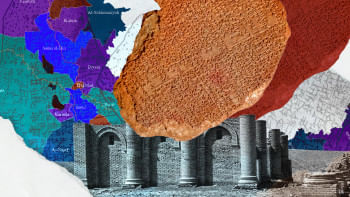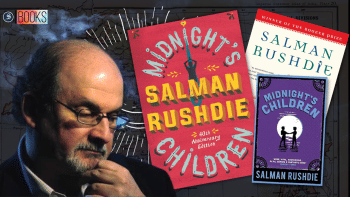On free speech and Milton’s 'Areopagitica'

Unlike most people who are introduced to John Milton through his epic poem, Paradise Lost, my introduction to John Milton was through his treatise Areopagitica—which remains one of the greatest defences of free speech and press freedom ever written till this day. I first came across Areopagitica back in the summer of 2018, when the infinite loop of Youtube algorithms brought me to a debate speech by the late columnist and polemicist Christopher Hitchens.
Intrigued by the book and, more importantly, its stimulating subject, I could not help but go through the text. It took my 14-year-old self less than a month to finish reading the treatise, for which the rigorous writing style and subject matter are mainly to be blamed. But what I learned from the book has shaped much of my own views about freedom of expression, as a debater, writer and civilian.
Written at the height of the English Civil War, the treatise argues against the Licensing Order of 1643 in England which would require all books to be licensed by government entities before publication and mass distribution.
"Falsest seducers and oppressors of men were the first who took it [censorship] up, and to no other purpose but to obstruct and hinder the first approach of Reformation", Milton writes, raising arguments against the pre-publication censorship of books—arguments that still ring true today, with governments of several countries using draconian laws to suppress public opinions different from the official narrative.
Milton also challenges the notion that censors will always have the incentive to carry out censorship in good faith. He writes, "How shall the licensers themselves be confided in, unless we can confer upon them, or they assume to themselves above all others in the land, the grace of infallibility and uncorruptedness?" Having lived in a subcontinent where different governments have, over the years, censored the press through intimidation and their politicised, polarised and militarised law enforcement agencies, Milton's words struck a chord within me.
Speaking further about this, Milton recalls his experience of meeting Galileo while he was imprisoned in Italy for suggesting that the Earth was not the centre of the universe. Milton uses this particular example to show how the erroneous use of censorship laws have hindered progress even in the quest for scientific truth. This reminded me of how teachers in this country had been threatened and imprisoned for the apparent "crime" of teaching school students about Darwinian evolution, among other things.
One of the most important of Milton's arguments is that it is not only important for people to be able to express their opinion freely, but that censorship also concerns the rights of those who want to listen to differing opinions. Individuals should be able to exercise their own abilities to determine whether an opinion is good or bad, Milton writes. He refers to an incident which apparently happened to Pope Dionysius of Alexandria when he received a revelation, "Read any books whatever come to thy hands, for thou art sufficient both to judge aright and to examine each matter."
This is particularly relevant as those who share a censorious instinct in the status quo often do so under the presumption that individuals are not wise enough to understand what texts they should or should not read. By establishing the fact that people are clever enough and should have their right to make up an independent opinion about books, Milton shows why book banning is counter-productive, whether it is an infamous book by Salman Rushdie or Orwell's Animal Farm.
Despite being written more than 350 years ago, the Areopagitica still serves as a foundational text in defence of some of the most important civil liberties which concerns us all. It is true that the text is archaic, and even difficult to follow for those unacquainted with the Biblical and classical references made by Milton. But the logical framework of his arguments lay bare how censorship is an abuse of power.
Hrishik Roy is an intern at The Daily Star. Reach out to him at [email protected].

 For all latest news, follow The Daily Star's Google News channel.
For all latest news, follow The Daily Star's Google News channel. 






Comments